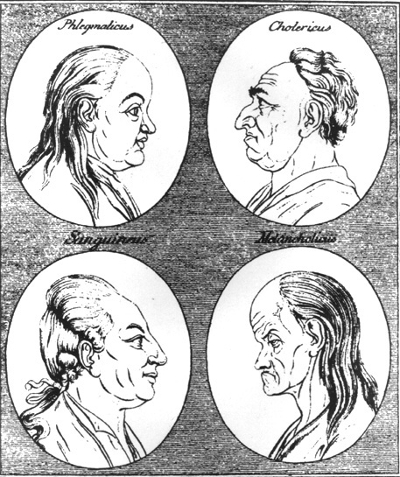Othello Contents
- Religious/ philosophical context
- Theatrical context
Act 3 Scene 4
Synopsis of Act 3 Scene 4
In a complete shift of dramatic mood after the preceding scene, Desdemona has a witty exchange with the clown last encountered in Act 3 Scene 1. She is looking for Cassio, but is also concerned that she has lost the handkerchief which Othello gave her. When Othello arrives, she again pleads Cassio’s cause whilst Othello asks after the handkerchief. When she cannot produce it, Othello leaves in a bad temper.
Cassio arrives with Iago and urgently pleads with Desdemona to persuade Othello to restore him as lieutenant. She and Emilia discuss why Othello is in a bad mood, Desdemona innocently thinking it must be work pressures whilst Emilia cynically sees it as a husband’s typical loss of passion once married – wives simply become a possession to guard jealously.
Cassio meets Bianca (a sex worker with whom he is having a casual relationship) and assures her of his affection, in spite of her complaining that he has been neglecting her. When he asks her to unpick the stitching of a handkerchief he has found in his room, she jealously assumes that he has a new girlfriend. He dismisses her as he is waiting for Othello.
Commentary on Act 3 Scene 4
I dare not say he lies anywhere. – The clown makes puns on the word’ lie.’ Desdemona is using the word as meaning where Cassio is living, while he persists in interpreting the meaning as sleeping (which a soldier mustn’t do whilst on watch) and then of himself telling an untruth.
my noble Moor .. ill-thinking – There is dramatic irony in Desdemona’s innocent belief in Othello.
 the sun .. drew all such humours .. fruitfulness and liberal heart. – Medieval philosophy believed there were four ‘humours’, - hot, dry, cold and moist, which governed a person’s character. Hence a dry character would suggest an unwelcoming, selfish character, while a moist character would suggest generosity and affection. Desdemona believes the heat of Othello’s country of origin has shrivelled up any jealous feelings, whilst Othello interprets her sweating palm as a sign that Desdemona is too liberal with her affections, i.e. unfaithful to him. Both are wrong.
the sun .. drew all such humours .. fruitfulness and liberal heart. – Medieval philosophy believed there were four ‘humours’, - hot, dry, cold and moist, which governed a person’s character. Hence a dry character would suggest an unwelcoming, selfish character, while a moist character would suggest generosity and affection. Desdemona believes the heat of Othello’s country of origin has shrivelled up any jealous feelings, whilst Othello interprets her sweating palm as a sign that Desdemona is too liberal with her affections, i.e. unfaithful to him. Both are wrong.She was a charmer – Othello is here attributing magical powers to the handkerchief he gave Desdemona, powers that originated in Egypt, a very unknown land in those days. This makes Desdemona feel even more guilty that she has lost it. We cannot know for sure if Othello is telling the truth or deliberately exaggerating to make her feel worse.
They are all but stomachs - This unpleasant metaphor gives a very negative picture of men and their attitude towards women. It also tells us a lot about Emilia’s attitude towards men in general and Iago in particular.
I would not be delay’d – The play’s plot would fall apart were it not for the urgency of timescale.
To fortune’s alms – Cassio wants to be reinstated, but if he cannot be, he will accept the situation and rely on whatever mercy fate brings him.
your virtuous means .. help me every spirit sanctified – Desdemona is again associated with holy imagery, which also fits with her recoiling from an artifact associated with witchcraft (the apparent provenance of her handkerchief). Her compassion to intercede for Cassio is a feeling commonly attributed to the Virgin Mary.
But now I find I had suborned the witness, / And he’s indicted falsely. – Desdemona’s metaphor here is that she herself has accused Othello too harshly. She is accusing her own soul of judging him falsely and feels guilty at her own treachery.
But jealous for they are jealous. – Emilia is here suggesting that some men have a natural inclination towards jealousy, even without any justification for it.
you are jealous now / That this is from some mistress, some remembrance. - There is a deliberate irony here, in that a woman, Bianca, can also be unjustifiably jealous. Sadly, Bianca’s jealousy is the exact opposite of Othello’s: she has much greater reason to mistrust Cassio (because he doesn’t really love her) but will be more easily mollified.
Investigating Act 3 Scene 4
- Study Desdemona’s speech starting from ‘I prithee do so .. until ‘And he’s indicted falsely.’ Write notes about the following:
- The excuses Desdemona makes for Othello’s behaviour
- The excuses she makes for men’s behaviour in general
- The way in which she accuses herself of behaving unkindly
- What this tells us about her character
- How do you feel towards her at this point in the play?
- How many times is there mention of destructive emotions (e.g. anger, jealousy etc.) or the imagery associated with them in this scene?
- What does Shakespeare achieve by building up the frequency of these allusions?
- What advice would you give the actors playing Emilia and Iago about the emotions behind their words in this scene?
Mary, the mother of Jesus and wife of Joseph. It is traditionally understood that Mary was, and remained, a virgin during both the conception and birth of Jesus.
